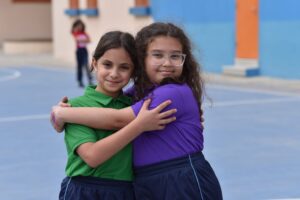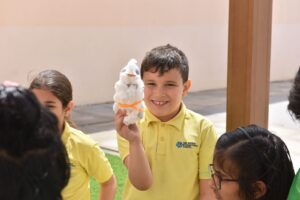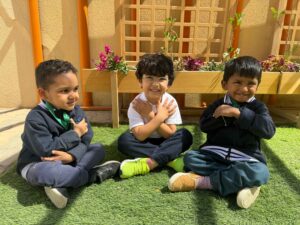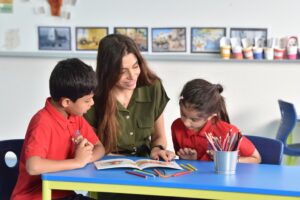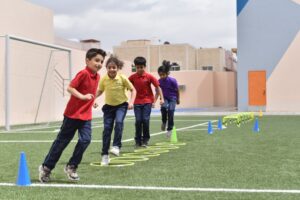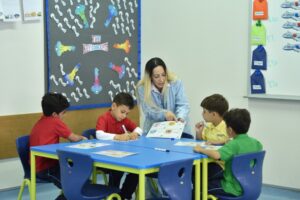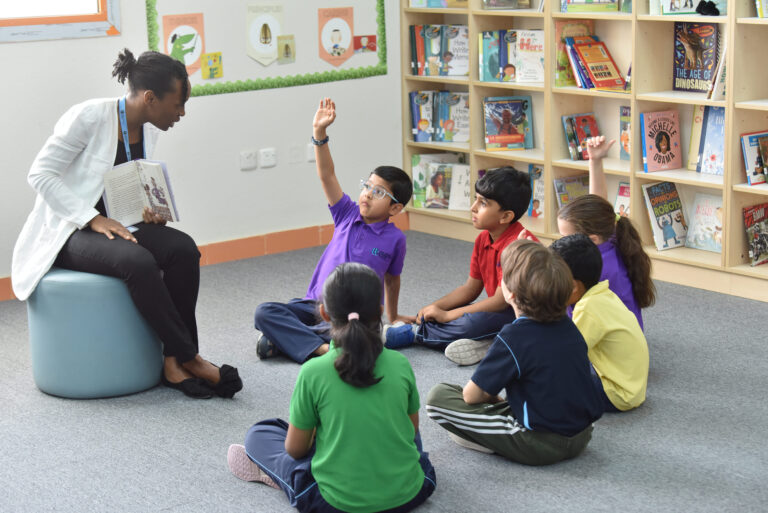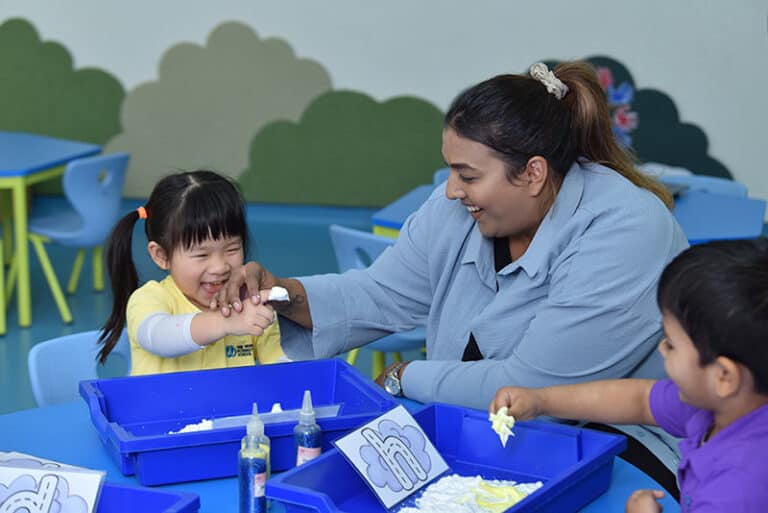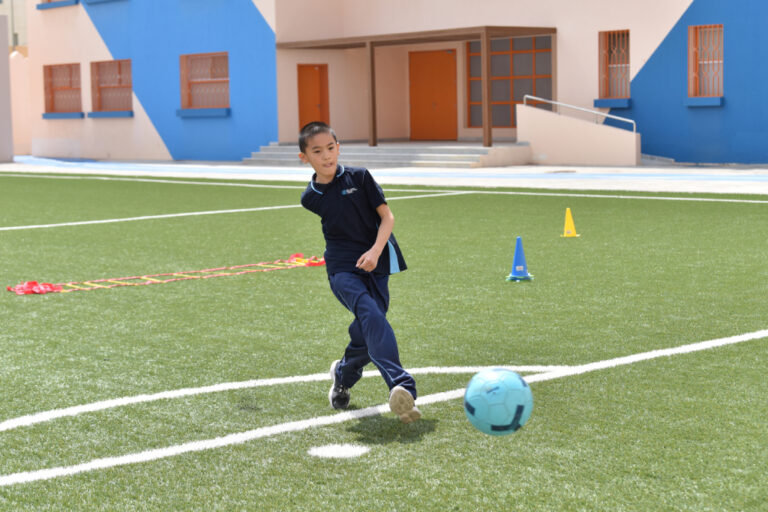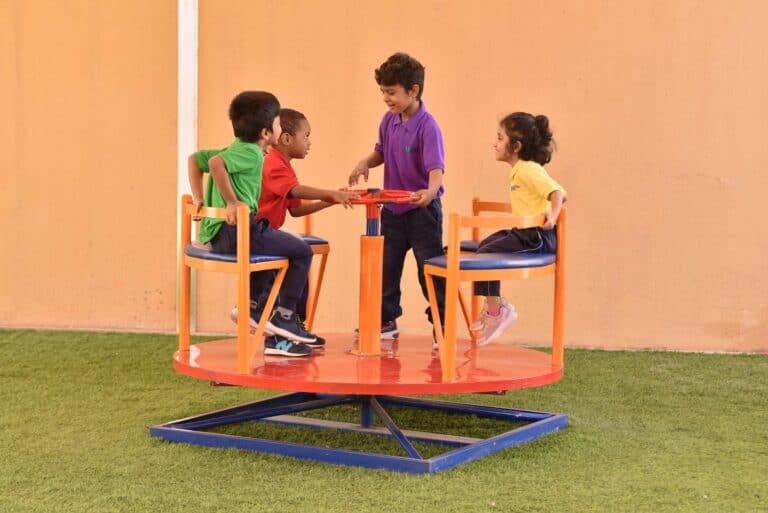For decades, if not centuries, educators focused on presenting students with information and encouraging them to memorize it. They earned high marks when they were able to reiterate those same facts back.
To some extent, knowledge acquisition is still a critical part of the learning process, but modern educators at the best schools in Riyadh prioritize higher-order thinking and critical thinking skills. Critical thinking plays a pivotal role in the IB curriculum, which is considered one of the best curricula worldwide, and it is introduced in our classrooms as early as possible.
What Are Critical Thinking Skills?
Critical thinking is the process of analyzing information and coming to a thoughtful, evidence-based conclusion — rather than simply accepting information as is and reiterating it. Critical thinking is not a natural way of thinking, it is a skill that must be developed and honed over time, and it’s best to introduce this skill into the classroom environment during the first years of a child’s education.
Introducing Critical Thinking Skills Into the Classroom
Critical thinking skills can and should be introduced into the classroom environment in the first years of a child’s education. There are ways to incorporate critical thinking into an Early Years and Primary Years Program, but it’s essential that educators are trained in a skills-based approach to education.
When students begin thinking critically in the early years of their education at the top school in Riyadh, Saudi Arabia, they will become natural analytical thinkers. Ultimately, it will prepare them for in-depth analysis and evaluation later in their educational careers and help them feel more comfortable in a rigorous academic environment.
The Role of Teachers in Developing Critical Thinking Skills
Teachers play a pivotal role in introducing the concept of critical thinking to young learners. Teachers are able to implement critical thinking strategies better when they are working with the best curriculum, such as the blended IB and American curriculum available at OWIS Riyadh.
At our international school, our staff members develop critical thinking skills in all of our students by:
- Prioritizing discussion in the classroom setting. Rather than asking leading questions and providing students with an array of answers to choose from, our teachers ask open-ended and conceptual questions. They give students the space they need to consider their answers and use their voices when responding.
- Showcasing the power of categorization. Sorting and categorizing is an activity that can be included in an early childhood or primary years program and can subsequently be built upon through a child’s educational experience. Categorization is a foundational skill that leads to developing well-rounded and effective critical thinking skills.
- Giving students the opportunity to make decisions. This sense of autonomy not only leads to an increased sense of self-confidence and independence, but it encourages children to weigh the pros and cons of their choices. It helps them zero in on those critical thinking skills and apply them in a way that feels personal and worthwhile.
The Role of Parents in Developing Critical Thinking Skills
While teachers may take more actionable and intentional steps toward encouraging children to hone their critical thinking skills, parents play a very important role in fine-tuning these skills over time.
Parents can help their children improve critical thinking and analytical skills by:
- Reading. It’s a simple activity that not only helps sharpen literacy skills and deepen the bond between parent and child, but it also helps significantly with the development of critical thinking skills. After you read a book with your child, talk with them about the text. Ask them why the main characters made the choices they made or how those choices impacted the story.
- Discussing alternative solutions. If your child has made a mistake in your home, talk with them about what went wrong. Then, ask them if they could have made a different choice or used an alternative solution to achieve a better outcome.
- Asking for an example. Deepen the discussions between you and your child by asking for anecdotes. Allow them to describe their day or their experiences in detail to you, and press for more information when possible.
How Cultivating Critical Thinking Skills Can Set Children Up For Success
When students learn that they can and should think critically, they begin to see their learning experiences from a totally different perspective. By actively cultivating and developing critical thinking skills in our students, we allow them to:
- Indulge in their own creativity. Critical thinking allows children to build on their natural sense of curiosity, and it supports their creativity rather than stifling it.
- Solve problems effectively and independently. Critical thinkers are more confident and know how to rely on their skills to create innovative and positive solutions to challenging problems.
- Become better researchers. In-depth research is necessary at all levels of education, and students with well-developed critical thinking skills know how to seek out valuable and accurate information from reliable resources to come to an evidence-based conclusion.
Long-term Benefits of Critical Thinking Skills
The benefits of critical thinking extend beyond the classroom. Students who experience the best curriculum in Riyadh, which emphasizes critical thinking and other 21st-century skills, will go on to be effective leaders with intuitive interpersonal skills. They will be better able to navigate complex working environments and be more accepting and understanding of the perspectives of others. Critical thinking is quickly becoming the most in-demand skill among workers in the global economy, so adept critical thinkers will likely be well on their way toward professional and personal success.
Learn More About 21st Century Skill Development at the Top School in Saudi Arabia
At OWIS Riyadh, we are proud to be known as the leading international school for expats. Our blended approach to the IB curriculum and American Common Core Standards allows us to offer the best curriculum in Riyadh. Not only is it a rigorous curriculum that provides a solid academic foundation for all students, but it also emphasizes 21st-century skill development; in particular, it hones critical thinking skills in students of all ages.
For more information about our international school in Riyadh, contact us today to schedule a campus tour.




